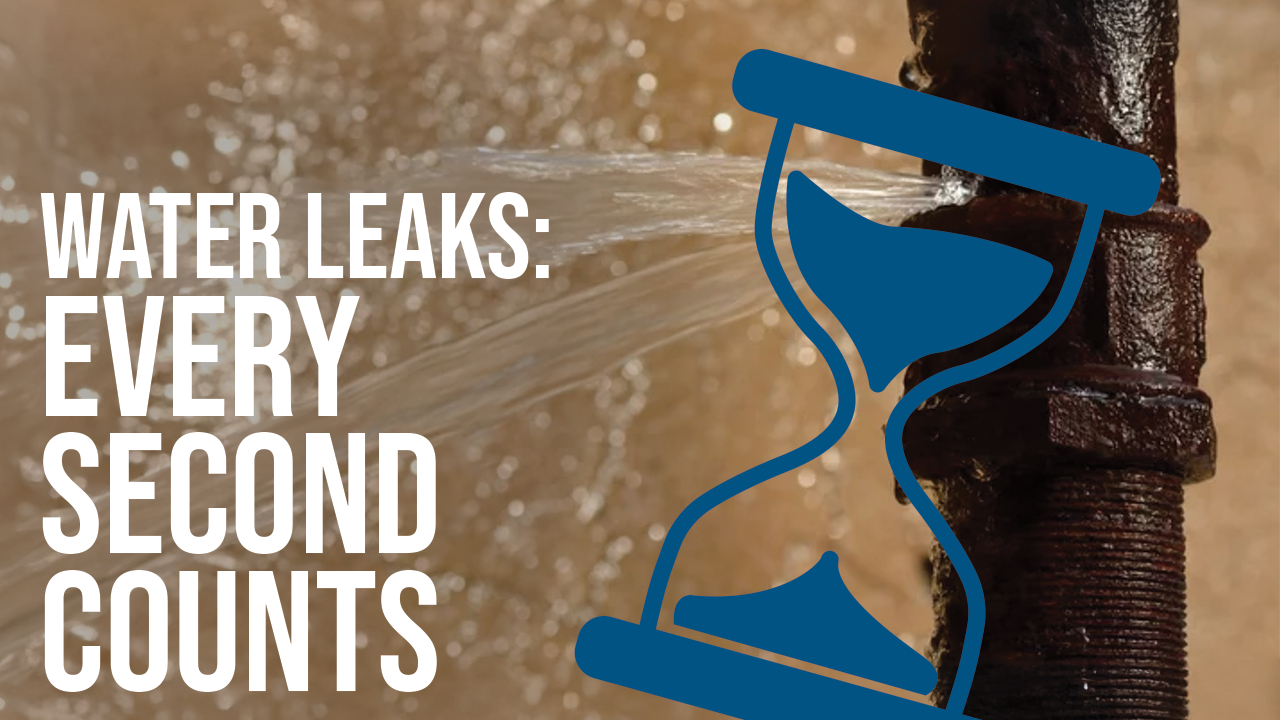Updated January 17, 2024
Many homeowners take their pipes for granted, imagining that the piping will last for as long as they live in the house. But at some point, almost all homes need re-piping services.
Re-piping can be limited to removing a single leaking section or can be an extensive project. Whole house re-piping includes plumbers removing all the pipes and swapping them for newer materials like copper or certain plastics.
If you’re wondering whether you need pipe repair or whole home re-piping, the answer is: it depends.
You might need pipe repair if:
- You’re experiencing decreased water pressure.
- Your water bill has suddenly increased.
- You see water stains on walls, floors, or ceilings.
- Your pipes are outdated.
- You have frequent pipe leaks.
- You can see corrosion on your pipes.
- You have rust-colored water.
You might need whole home re-piping if:
- You’re experiencing decreased water pressure.
- Your water bill has suddenly increased.
- You see water stains on walls, floors, or ceilings.
- Your pipes are outdated.
- You have frequent pipe leaks.
- You can see corrosion on your pipes.
- You have rust-colored water.
The best way to determine the best solution for your pipe problems is to have an experienced plumber come to your home. However, to help you anticipate your possible expenses, let’s review some of the most common signs that you might need a pipe repair or whole home re-piping.
Want a professional opinion on whether you need whole home re-piping or a pipe repair? Call Golden Rule at 515-393-4526 or contact us online.
Contact Us Today for Plumbing Service!
You might need pipe repairs if…
You’re experiencing decreased water pressure.
If your home’s water pressure has suddenly decreased, it could be a sign that you have leaky pipes somewhere in your house or underground in your main water line.
Unfortunately, some leaks can be challenging to detect if walls and floors are obscuring the pipes. However, an experienced plumber can determine whether you have a leak and where it’s coming from by using innovative technology. They can also provide the necessary repairs.
Your water bill has suddenly increased.
If your water usage habits have remained the same, but you’re suddenly paying way more for water each month, you might have leaky pipes. One way to test this is to locate your water meter and mark the indicator. Don’t use any water for two to three hours and recheck the meter. If the indicator moved, you might leak somewhere in your piping.
You see water stains on walls, floors, or ceilings.
Some signs of leaky pipes will be visible throughout your home. For example, if you notice any of the following things, you might leak:
- Stains on the ceilings or walls
- Cracked or warped flooring around fixtures or appliances that use water
- Spongy spots on the floor
- Bubbling and peeling paint or wallpaper
- A plumber can help you confirm the location of a leak based on the visible signs. They’ll also have the proper tools, strategies, and supplies needed to repair the leak.
You might need whole‑home re-piping if…
Your pipes are outdated.
The age of a home is one of the leading indicators if it needs re-piping.
For example, a home built before 1970 likely contains out-of-date metals, such as galvanized steel. After 1970, copper and corrosion-resistant plastics (e.g., PEX and CPVC) replaced most of these metals. If construction companies built your house before 1970, have a plumber investigate your pipes to see if they need re-piping.
You should especially get a plumber to look at your pipes if you have a home built before World War II, as they almost certainly will need extensive re-piping if not already done. Homes built before the 1930s used cast iron, galvanized steel, and even clay for their plumbing systems. The pipes have likely suffered numerous leaks and other issues, and whole-house re-piping is probably the best solution for the future health of your plumbing and house.
On the other end of history, even some homes built in the early 1990s may need whole home re-piping because of pipes commonly made with polybutylene, a plastic resin prone to leaks and clogs.
You have frequent pipe leaks.
If you have three or more leaks in less than six months, your pipes probably need to be replaced. You might also notice some of these common symptoms:
- Higher water bills (even though your usage is normal)
- Low water pressure
- Mold and mildew issues
It’s a good idea to arrange for leak detection services every few years to give plumbers the chance to locate hidden water leaks before damage occurs to your plumbing. While you most likely won’t need a whole house re-piping, the plumbers may find patches of corrosion on your copper pipes. Copper is resistant to most forms of corrosion—but not all of them. If plumbers find that the leaks are extensive, consider scheduling a whole house re-piping.
You can see corrosion on your pipes.
Widespread and extensive corrosion on your pipes is a good indicator that they need replacement.
If you notice any of the below problems, you might need whole-home or partial re-piping in certain areas of your home:
- Discoloration on pipes (rusty powder on top or blue/green tinting on copper pipes)
- Flakiness
- Dimples in pipes
You have rust‑colored water.
If you have iron or steel piping, you may notice rust-colored water coming out of your hot and cold-water taps, which signifies that your pipes might have corrosion and need replacement. However, suppose the rust-colored water is only noticeable in your hot water. In that case, it may be an issue with your water heater’s anode rod instead.
When you’re dealing with rust-colored water, it’s best to have a plumber come to your home to inspect both your water heater and pipes. They will be able to determine whether the cause is your home’s water heater and pipes or if it’s the municipal water supply. They’ll also provide professional recommendations for the next steps.
Partial vs. Whole‑Home Re-piping: Which is best?
While you’re reading this, you may be thinking, “Great. I think I need new pipes. But how much re-piping is necessary?”
Should you have a few old pipes swapped for copper/plastic, or have all of the piping removed? Again, it depends.
Was your home built in the 1970s or ‘80s? You may only need sections of the piping replaced. A plumber can identify the steel joints and sections causing your problem and recommend any other upgrades that will improve your plumbing and keep it in good shape for years to come.
Was your home built before the 1970s? Be prepared to need a whole house re-piping. Ask your plumber for a recommendation. If whole-house re-piping is the best choice, you’ll be glad you had it done. A new pipe system means removing potentially toxic materials from your water, reducing repairs, improving drainage, and increasing your home’s value. New copper and plastic piping will give the plumbing system another 50+ years of life before it needs significant upgrades again.
Both types of re-piping are enormous undertakings that require hiring a licensed plumber in Des Moines with experience in large-scale projects. Never hire amateurs to handle re-piping a house—even if it seems like a minor project.
Only professionals can finish the work fast and accurately. Even with a whole house re-piping job, professional plumbers will ensure little disruption occurs to your home life and leave little trace of the work.
Contact Golden Rule. Our highly trained plumbers will give you an honest evaluation of your pipes’ condition and help you decide if a pipe repair or whole home re-piping is best for your home.
Want a professional opinion on whether you need whole home re-piping or a pipe repair? Call Golden Rule at 515-393-4526 or contact us online.
If you found this post helpful, check out some other budget-saving tips:


Water emergencies can strike when you least expect them. Whether it’s a burst pipe, an overflowing toilet, or a persistent leak, quick action can prevent costly damage.... Read More

Few things are as frustrating (and messy) as a toilet that overflows. Whether it happens at the worst possible moment or simply leaves you scratching your head... Read More

The holidays are a magical time of year—gathering with loved ones, sharing meals, and creating lasting memories. But one unexpected mishap can turn your festive celebration into... Read More
